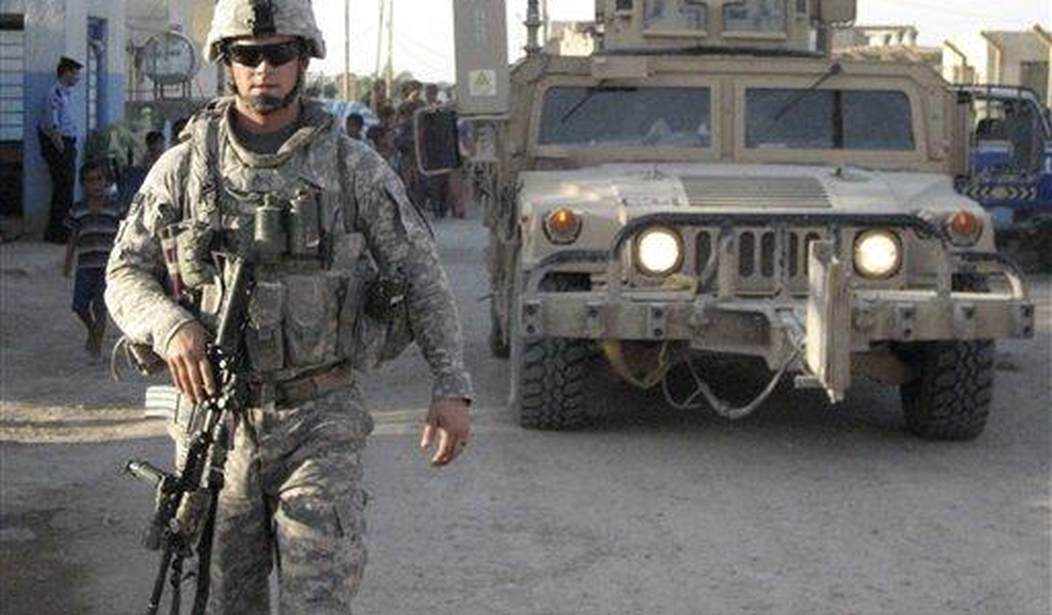After 22 years, the Army is returning to the motto, “Be All You Can Be.” In 2001, it was replaced with “Army of One.” This disaster slogan was immediately interpreted throughout ranks as “It’s all about me.” Rather than pushing dedication to duty and soldier values, recruiting strategy was focused on promising benefits and financial incentives. Subsequent Operation Iraqi Freedom and Enduring Freedom deployment notifications resulted in complaints of “I didn’t sign up for this.”
Rather than admit a mistake, senior leadership struggled to find a better motto. Introduced in 2006 and lasting 12 years, “Army Strong” had some merits, but still came up short in calling for self-motivation. Replacing it in 2018 with “Warriors Wanted” should have resulted in drug testing for the creator and approval authority. In 2019, Army leadership modified it to “What’s Your Warrior.” Unfortunately, this dead horse spent four years decaying in plain sight waiting to be buried.
Still refusing to admit that a wrong decision was made, Army leadership claims “Be All You Can Be” is being brought back for nostalgic reasons. It’s more than nostalgia. It encompasses personal character, knowledge necessary to properly fulfill responsibilities, and self-application to achieve mission accomplishment. It also applies to all levels of organizations, from fire team to the Army itself.
“Be All You Can Be” comes with the expectation of two pledges. First is from soldiers to do the best job possible. The second is from commanders to ensure the existence of a professional environment in which soldiers can succeed while continuing in personal and team development. Those pledges were well expressed in the “We do more before breakfast than most people do all day long” recruiting advertisement.
Secretary Christine Wormuth admits that last year the Army fell 15,000 recruits short of its 60,000 goal. Annually failing to recruit the number of soldiers who comprise an infantry division is not sustainable for long-term national defense. Four years of these failures will equate to the size of a corps.
Recommended
In response, Secretary Wormuth states that she and Army Chief of Staff General James McConville recognize the need to set a bigger goal and push recruiters to bring in more future soldiers. Simply raising the goal is not going to produce more recruits. It’s going to create a bigger failure percentage. The solution is to fix the problems that are keeping recruiting numbers down in the first place. Recent surveys reveal quality of life and security concerns among those who are eligible to enlist.
Potential recruits feel military service will put their lives on hold while their peers are taking advantage of the robust job market. The reality is just the opposite. The Army has almost 200 occupational specialties for which thorough training is provided before arrival at permanent assignments. Those skills are then enhanced through daily jobs. Choice of assignment locations are readily available throughout the United States, Europe, and Asia. All major installations have education centers hosting accredited university extension programs. Through aggressive participation in night school, a soldier can keep pace with civilian peers while not incurring college loan debts.
Veteran support systems exist to help with after-service education, home purchasing, and to provide numerous other benefits. The biggest benefit is a well-earned honorable discharge – something civilian peers cannot match.
Issues concerning personal security is a leadership problem in which ownership starts with General McConville and Secretary Wormuth. Today’s security concern is not the risk of dying in a war against China and Russia. The real risks are being assaulted, raped, and even murdered by fellow soldiers or committing suicide because of the environment in which the victims are suffering.
This is especially true for, but not limited to, female soldiers. Vanessa Guillen, Morgan Robinson, Nicole Burnham, Asia Graham, and Denisha Montgomery are but a very few of the recent fatalities. I extensively worked on three of those cases. The common denominator was the toxic environments in which they were trapped while their chains of command failed to execute professional responsibilities – before and after their deaths. Without Members of Congress, television reporters, and newspaper journalists taking the high ground to address the details and circumstances concerning the assaults and subsequent deaths, critical information would have been covered up.
Physical and emotional abuse is running rampant in the Army. Instead of aggressively standing up to the problems, senior officers and NCOs are downplaying and ignoring what is happening within their areas of responsibility. All this is with the hope that nothing will break open on their watch so that they can move on and get promoted.
The days of former Army Chief of Staff General Ray Odierno enforcing safety, discipline, and accountability at all levels in the ranks have been lost. If a former motto can be resurrected, so can the practices and dedication of an Army leader who always pushed himself to ensure his soldiers served in professional environments at all levels.
“Be All You Can Be” works two ways. It cannot be a challenge placed on subordinates without acceptance and commitment from seniors.

























Join the conversation as a VIP Member